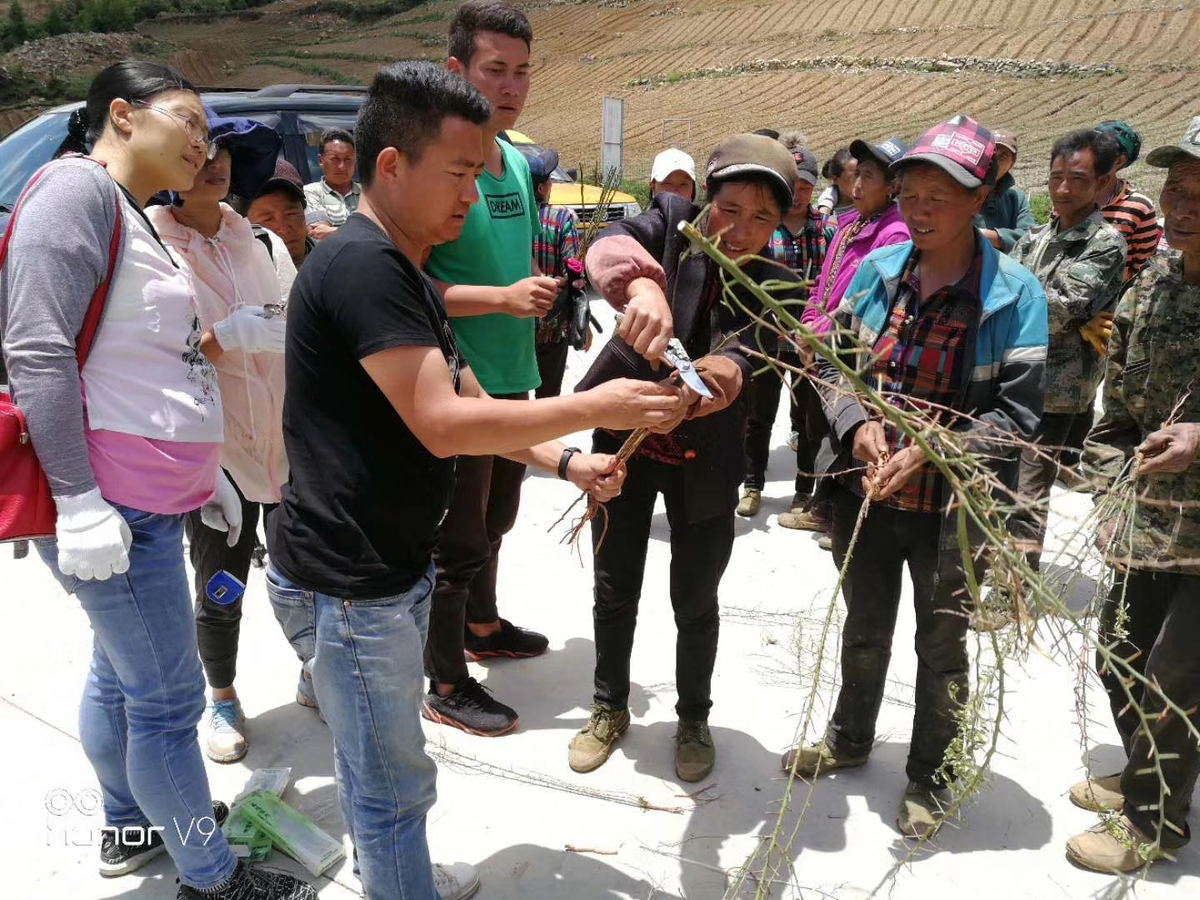 |
|
Wang prunes fruit trees alongside villagers. [Photo provided to China Daily] |
Wang, an ethnic Yi himself, with his hair increasingly flecked with gray, gets tears in his eyes when recounting stories about how villagers have taken him in like a family member.
When infrastructure, like roads, power grids and pipe networks, internet access - and also a kindergarten - were built, Wang moved to start an agricultural base that grows traditional Chinese medical herbs like Fritillaria cirrhosa, Lilium pumilum and Prinsepia utilis to help grow a collective economy.
Because of the cold weather and infertile soil in Ahou village, it's inefficient to plant cash crops like peppercorns and walnuts which are commonly seen elsewhere in the prefecture.
Chen Yulin, who was sent by Sichuan's Deyang city in June 2018 to help with poverty alleviation work, was impressed by Wang's patience in explaining policies and economic plans to villagers.
Though not able to understand Yi language, he could tell Wang persuaded villagers to switch over to growing varieties suitable for local environment in an honest and detailed way.
Despite the disputes which sometimes happened during the process, they would reach a consensus and the villagers would correspond with him afterward.
Wang then invited experts to come and teach villagers the skills needed to work and improve income. He attended the lessons with them, so that he could help when villagers met difficulty in understanding the teachers.
As the herbs and sheep sold well, depending on their initial stake of either 200 or 300 yuan invested in 2017, for two consecutive years, the villagers received dividends ranging from around 1,800 to 3,000 yuan, Chen says.
Wang also encourages young villagers to learn how to manage an agricultural project, from the purchase of seeds and seedlings and their cultivation, to harvesting and sales.
Additionally, the village, which is surrounded by verdant hills, is set to build some sun houses and guesthouses to attract tourists from cities to come and experience a countryside lifestyle.
In doing all these things, Wang's major incentive is to guarantee that villagers are aware and capable of broadening the ways to improve their lives when the external help eventually leaves.
Getting to town is much more convenient nowadays, as almost every family has a motorcycle and villagers can also hail cars online.
Chen also found that young villagers have developed a growing interest in finding jobs in cities, either to improve income, open their mind, or seek better education opportunities for their children.